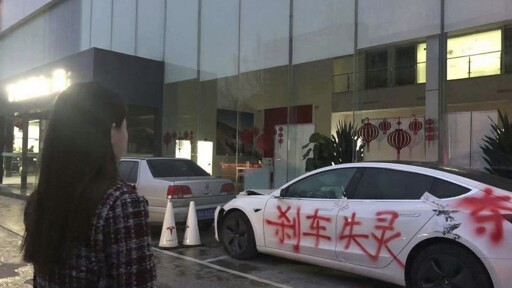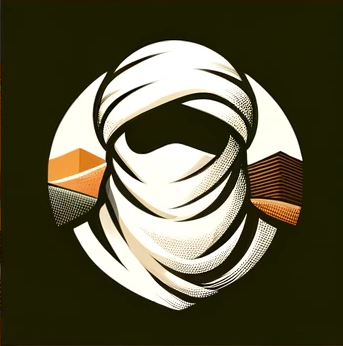Zhang Yazhou was sitting in the passenger seat of her Tesla Model 3 when she said she heard her father’s panicked voice: The brakes don’t work! Approaching a red light, her father swerved around two cars before plowing into an SUV and a sedan and crashing into a large concrete barrier.
Stunned, Zhang gazed at the deflating airbag in front of her. She could never have imagined what was to come: Tesla sued her for defamation for complaining publicly about the car’s brakes — and won. A Chinese court ordered Zhang to pay more than $23,000 in damages and publicly apologize to the $1.1 trillion company.
Zhang is not the only one to find herself in the crosshairs of Tesla, which is led by Elon Musk, among the richest men in the world and a self-described “ free speech absolutist.” Over the last four years, Tesla has sued at least six car owners in China who had sudden vehicle malfunctions, quality complaints or accidents they claimed were caused by mechanical failures.
If a Chinese court would side with an American company against its own citizens it means one of two things:
- The girl’s father was really at fault.
- The judicial system in China is fucked up beyond repair.
Japan has similar laws curbing free speech. It comes down to the east asian concept concept of ‘face’.
Japan’s defamation/libel laws, similar to this Tesla case China, don’t matter if what you said is true. What matters is that you disrespected the ‘face’ and reputation of those in power.
For example, if a news agency reports on a rapist, or an individual puts up a bad review online: it doesn’t matter if it is true. The ‘victim’ sues you for libel/defamation for speaking the truth because you didn’t “give them face” and you hurt their public reputation. Expect the police to come knocking and ask you to remove your truthful reviews, or you risk jail time or civil penalties.
Edit:
The judicial system in China is fucked up beyond repair.
I suspect the judicial system here is working exactly as intended. Its the laws in Japan/China that are fucked when it comes to free speech vs protecting the ‘face’ of those in power.
Japan’s defamation/libel laws, similar to this Tesla case China, don’t matter if what you said is true. What matters is that you disrespected the ‘face’ and reputation of those in power.
That is the stupidest fucking idea I have ever heard
Agreed. I live in Japan and self censor what I say online, avoid leaving negative but truthful business reviews, because there is a very real risk of being sued for libel.
In your second link it contradicts what you say about it not mattering if it’s true, right below the section you quoted:
“If the act relates to matters of public interest and has been conducted solely for the benefit of the public, the truth or falsity of the alleged facts shall be examined, and punishment shall not be imposed if they are proven to be true. (See Article 230-2 of the Criminal Code). Article 32 of the Criminal Code provides for the Statute of Limitations for filing a criminal action for defamation which shall prescribe in ten (10) years.”
Yes, if you only consider the letter of the law. But the spirit of the law and the pro-business, pro-those-in-power courts rarely rule in the individual’s favor. The laws weren’t made for you the individual.
Don’t Get Sued! Libel, Slander, and Defamation Laws in Japan
More relevant discussion here about the concept of face.
edit: Key comment here:
“The law in Japan has a cultural and legal background in much older laws about “damage to honour”. Anything that damages someone’s social standing, regardless of whether a specific claim is being made, is not on and is liable to be considered defamatory. Further, the lack of a specific claim makes the “truth and public interest” bar much, much harder to meet since you can’t claim that your statement was truthful or in the public interest if there’s no specific claim the business or person can respond to. If you’re just being insulting you’re one a one-way trip to a legal spanking.”
I live in Japan and self censor what I say online, avoid leaving negative but truthful business reviews, because there is a very real risk of being sued for libel.
It’s not whether the girls father is at fault, read the article. She put a lot of effort into publicly defaming the company to try to get damages. While it seems like they should have had a better response, including sharing the evidence they had, there has to be a better way to get justice
she draped her damaged car with a banner proclaiming “Tesla brake failure” in front of the Tesla dealership in Zhengzhou, the capital of Henan province, some 200 km (124 miles) from her home. She sat on the Tesla’s roof and blared her protest through a bullhorn: “Tesla Model 3 brakes failed,” she said. “A family of four almost died.” The next month, she parked her damaged car outside an auto show in Zhengzhou
Well, the article does say that Tesla enjoys the patronage of powerful members of the CCP. Like any capitalist society, China is ruled by the elite, and the elite are friendly with Tesla.
With Musk, I’m guessing #2.
Reason 412 why I’ll never get in a Tesla.
Consumer protection is key for any country.
Too bad the US seems to have shut down its consumer protection agencies.
It is not common practice for automakers — in China or elsewhere — to sue their customers. But Tesla has pioneered an aggressive legal strategy and leveraged the patronage of powerful leaders in China’s ruling Communist Party to silence critics, reap financial rewards and limit its accountability.
This was very explicitly in China. That’s not to say we’re doing much better though.
This was in China though.
I don’t see any reason to think they didn’t realize that.
For now.
coming soon…
Fun fact: electric brakes, “brake by wire”, dont have mechanical backups.
I trust the rusty hydraulic brake lines on my XJ Cherokee more than i trust Tesla to not have electrical glitches.Edit: I’m not certain Teslas are using brake-by-wire and i was assuming they were based on an article i read a while ago.
I will continue shit-talking Teslas, regardless.
Depends on the vehicle. My Nissan Leaf (full electric) and Chevy Volt (plug in hybrid) both brake primarily with regenerative braking, but pushing the brake pedal past a certain point engages conventional brakes.
I don’t think it’s even possible to come to a full stop in either vehicle without engaging the physical brake. Regenerative braking doesn’t do much when you get under 10 MPH or so.
Regenerative braking and brake by wire are 2 very different things. One is the brake pedal engaging an energy generating device based on current resistance/momentum until certain physical conditions are met, the other is the brake pedal being attached to essentially a trigger like on a game consoles controller, that tells a computer how hard you pressed the pedal, which then thinks about it and tells the calipers to engage the amount it thinks you meant.
The Nissan Leaf is not brake-by-wire—the brake pedal is directly connected to the car’s hydraulic braking system.
If your electric brake-assist failed you would still have conventional hydraulic brakes.
Jk wrangler. Electrical issues out the ass, but nothing that’d be fatal.
But Tesla is not brake by wire like that. The brake pedal is connected directly to the hydraulic system, right?
I think you’re right, actially. I incorrectly assumed Tesla was full brake-by-wire at this point.
Wtf






